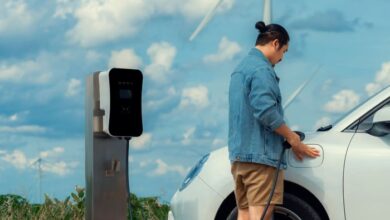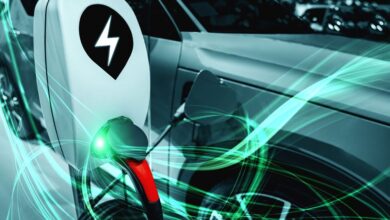Exploring The Dynamics Of The Global Automotive And EV Markets Amidst Industry Shifts

$9866.HK
In the ever-evolving landscape of the global automotive industry, significant shifts are underway, influencing market dynamics and consumer preferences. The industry, currently valued at approximately $4.07 trillion, is poised for substantial growth, with projections indicating a potential rise to $6.95 trillion by 2032. This growth trajectory is underpinned by a robust compound annual growth rate of 6.9%, with the Asia-Pacific region, led by automotive powerhouses China and India, expected to experience the fastest growth.
The transition towards electric vehicles (EVs) is one of the most transformative trends within the sector. Recent developments have seen China’s largest auto show unveiling an impressive lineup of electric vehicles, signaling a decisive shift towards greener transportation solutions. This move is not isolated, as global automakers are increasingly committing to electric and new energy vehicles, which recently accounted for half of the cars sold in China in early April.
Amidst these industry-wide transformations, the used car market is also witnessing significant expansion. Valued at $1.5 trillion in 2022, this segment is anticipated to grow at a 5.2% CAGR, reaching $2.6 trillion by 2032. The growth is driven by the affordability of used cars and the rise of digital platforms that facilitate vehicle history checks, car listings and comparisons, enhancing consumer trust and transaction transparency. In the realm of vehicle history services, Carfax and AutoCheck emerge as prominent players, offering detailed reports that are crucial for informed used car purchases. These platforms provide a comprehensive look into a vehicle’s past, covering aspects such as accident history, ownership details and maintenance records, which are indispensable for potential buyers.
The automotive industry’s landscape is further enriched by the strategic movements of key players like Mercedes-Benz Group AG, Nio Inc. and Honda Motor Co., Ltd. These companies are not only enhancing their product offerings but are also forging significant partnerships and expanding their geographical footprint to leverage emerging market opportunities. For instance, Mercedes-Benz has recently introduced new hybrid models, which are part of its broader strategy to dominate the luxury car segment. Similarly, Nio Inc. is making headlines with its innovative approaches and partnerships aimed at enhancing its technological edge in the electric vehicle market. Honda is also making strategic investments to establish a comprehensive electric vehicle value chain in North America, anticipating the future demand for EVs.
These developments reflect a sector that is at a critical juncture, with traditional and new-age automakers alike navigating the complexities of technological advancements and changing consumer preferences. The industry continues to evolve, the focus on sustainable practices, innovation in electric vehicle technology and the strategic expansion into new markets will likely shape the future trajectory of the global automotive landscape. The ongoing transformations present a fascinating phase in the automotive sector, promising a future where innovation and sustainability drive growth and consumer satisfaction.



